Faial da Terra – São Miguel Island
Located in the municipality of Povoação, in the southeastern part of the beautiful São Miguel Island, the parish of Faial da Terra is yet another of these picturesque Azorean villages surrounded by lush nature, offering peace and tranquility, attracting visitors from all over the world.
It was in this municipality, to which Faial da Terra belongs, that the first settlers of São Miguel disembarked, officially established by decree of Queen D. Maria II on July 3, 1839. This parish is known as the “Nativity of the Island” and every year, the festivities of the Empire of the Most Holy Trinity take place, aimed at reviving local traditions.
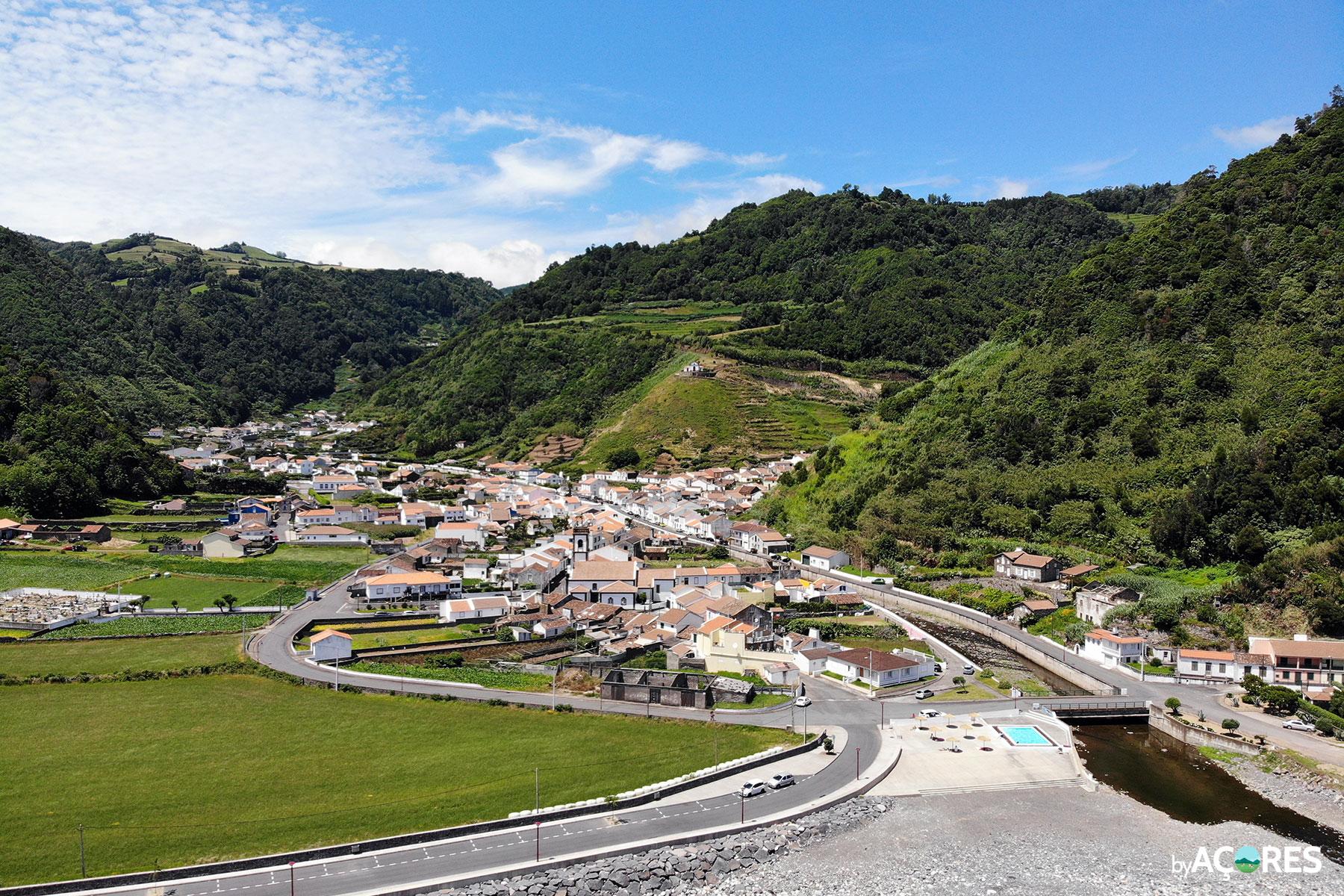
The main economic activities in this parish are agriculture and commerce, thanks to the agricultural crops and pastures, as well as handicrafts, which have always been part of its history. In terms of gastronomy, highlights include fervedouro, liver sauce, bolo da sertã, thick porridge, Holy Spirit soups, pork cracklings, blood sausage, and chorizo.
However, what stands out the most in Faial da Terra is its rich historical heritage, composed of significant architectural projects, such as the elegant Church of Our Lady of Grace, built in the early 16th century, the Chapel of Our Lady of Lourdes, dating back to 1900, the Alminha, a symbol of religious life, the fountains, which played a crucial role in water supply in the past, and the Bandstand, a structure designed to host musical bands during festivities.
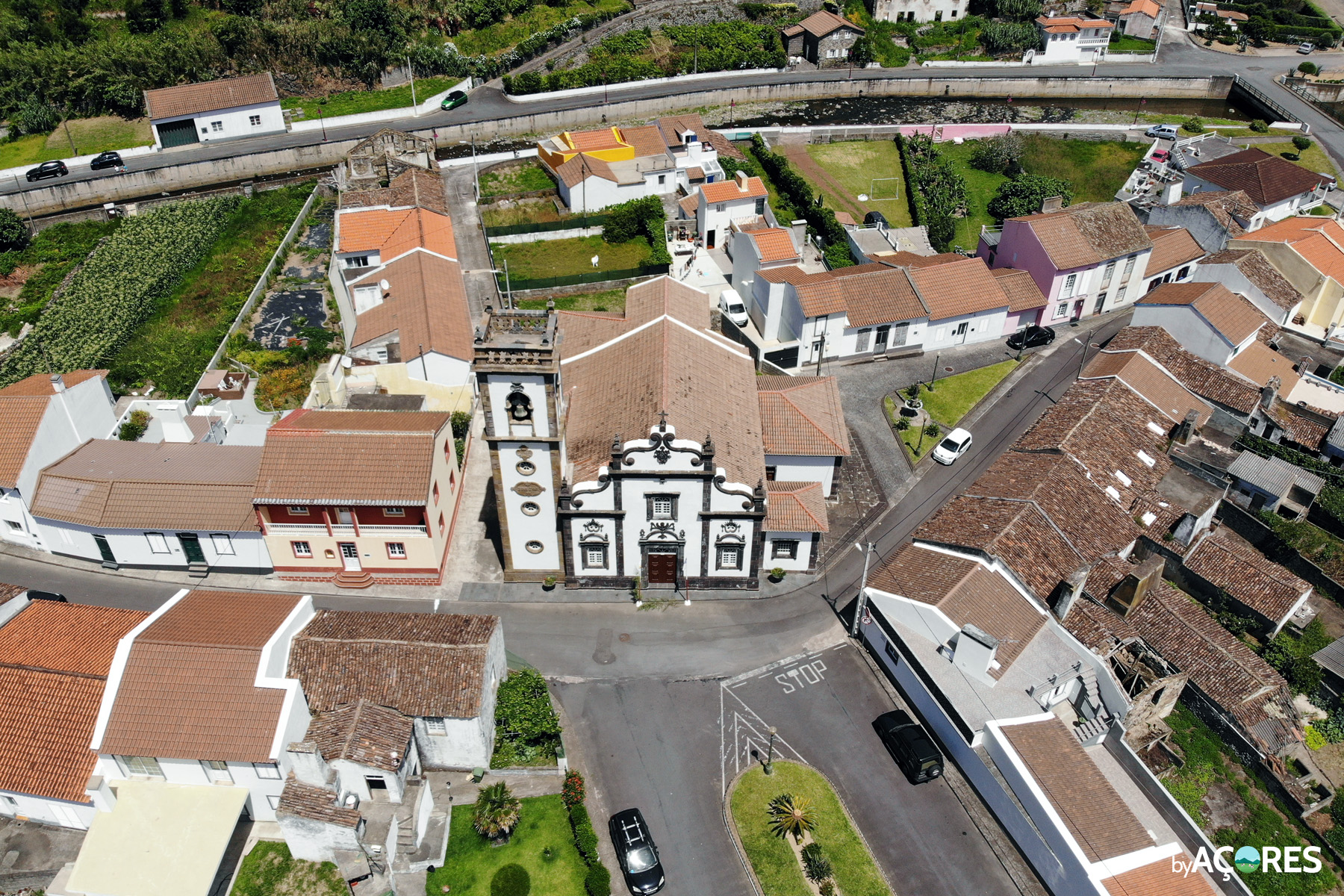
Other points of interest in Faial da Terra include the viewpoints of Pico dos Bodes and the Chapel of Our Lady of Lourdes, offering visitors excellent panoramic views from different angles of the area, and the Praceta Nossa Senhora da Graça, ideal for resting and relaxing.
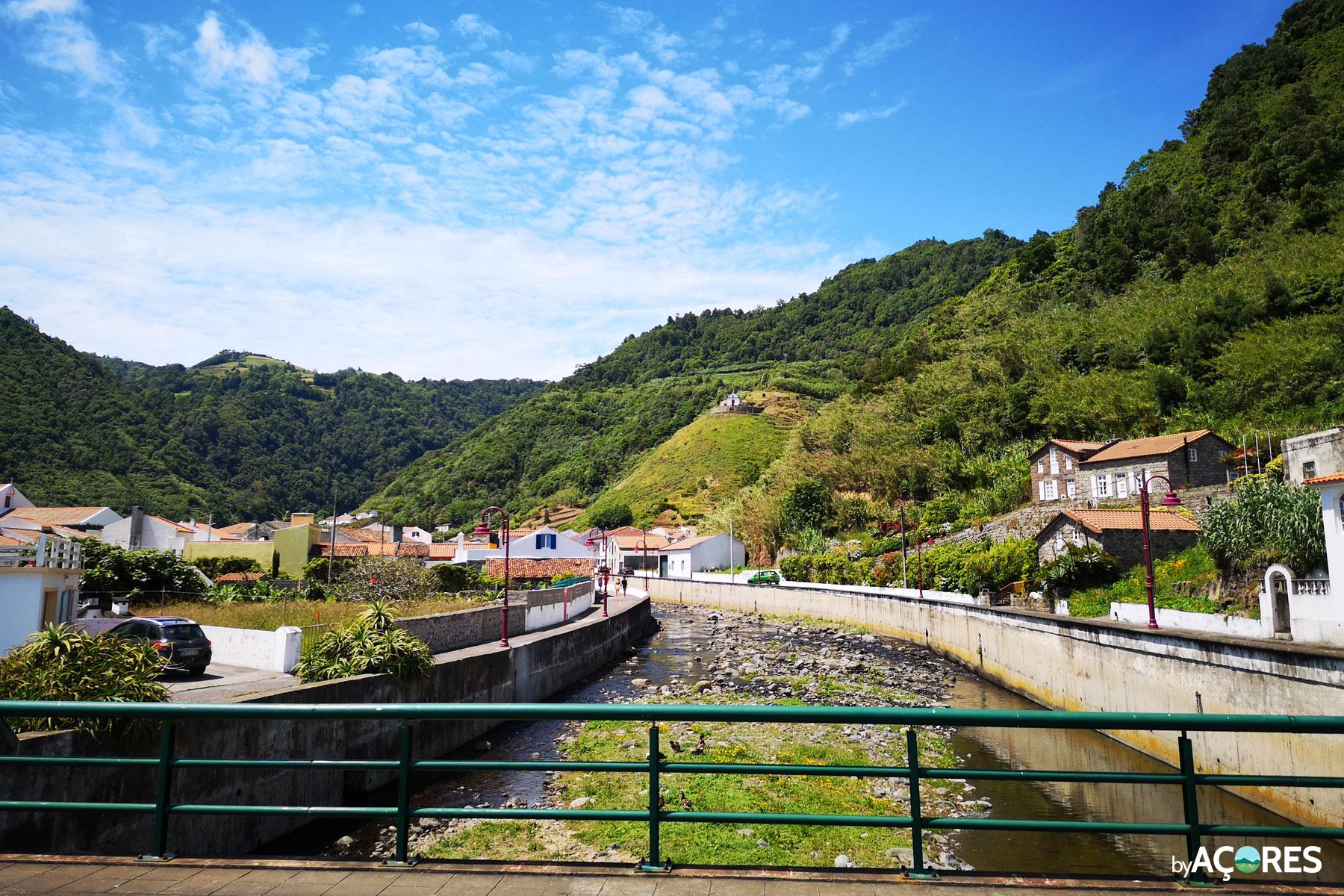
Therefore, when visiting São Miguel Island, be sure to explore Faial da Terra, a parish filled with beauty and spectacular attractions.
Índice de conteúdos [ocultar]
Things to Do and Visit in Faial da Terra
Sanguinho
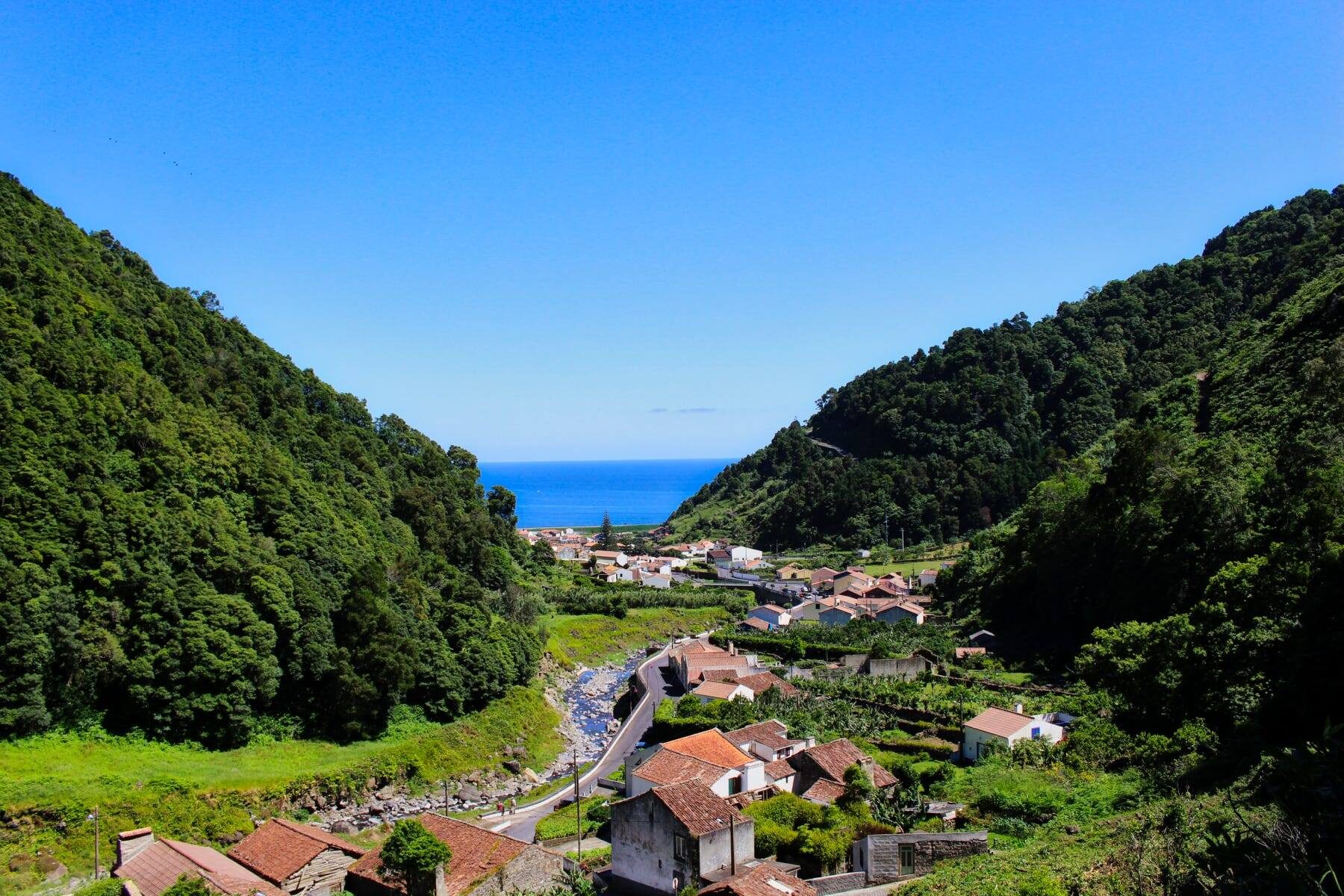
Fotografia de Bruno Sousa
Situated in the parish of Faial da Terra, Sanguinho is a rural village that has housed approximately twenty uninhabited houses since the early 1970s. In the past, the area accommodated around two hundred people. However, due to a lack of comfort, access difficulties, and emigration, these individuals were forced to leave the village. Nevertheless, to preserve the history of Sanguinho, the residences are undergoing a restoration process.
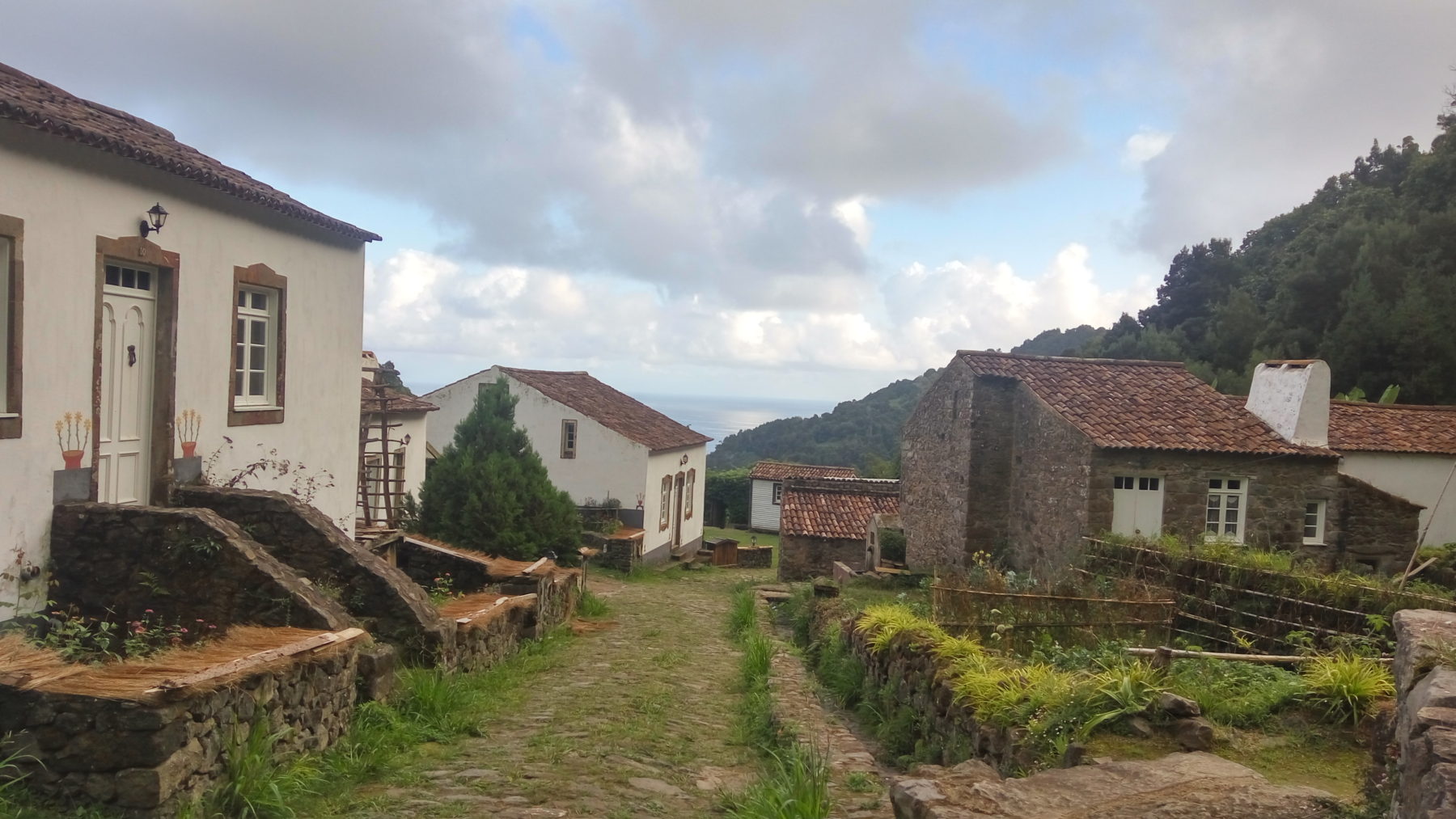
Fotografia de Mário Ramalheiro
The origin of the name comes from the abundant presence of the “sanguinho” (Frangula azorica), a rare endemic plant of the Azores. It was once believed that the region was populated so that farmers could stay closer to their lands, and it also served as a means for people to protect themselves from frequent floods and maritime storms that occurred in the area.
Salto do Prego Trail
The Salto do Prego Trail has an average length of 6 km, featuring a dirt path with steep inclines, steps, and hydraulic passages. The trail begins near the bus stop, requiring you to follow the asphalt until the fork and continue on the dirt path along the left bank of the stream.
Throughout the trail, you can enjoy the native Azorean vegetation, such as incense and acacia, the predominant species along the way. Additionally, there are various orchards on both sides of the stream, cultivated by families living nearby.
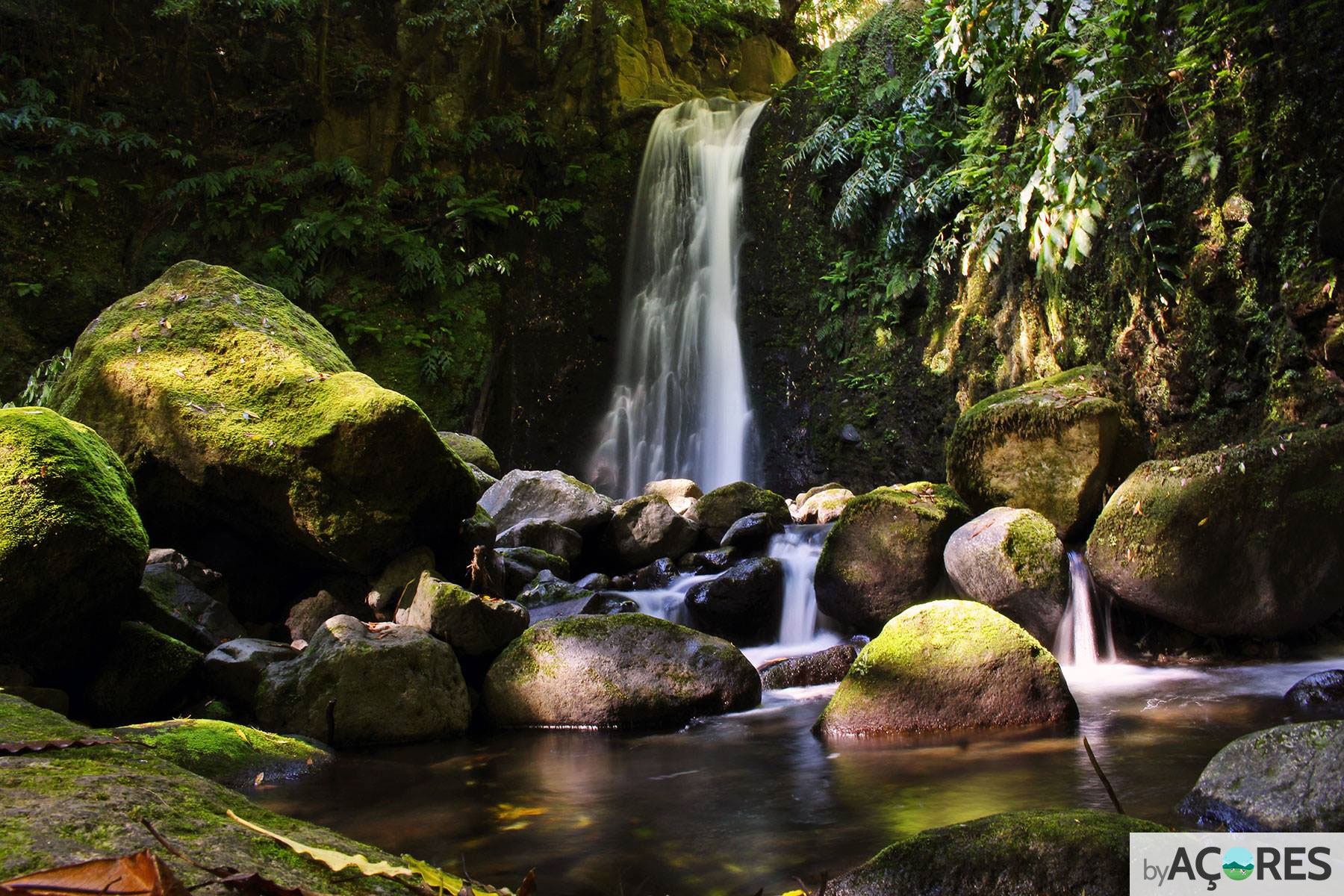
As you follow the trail, crossing a bridge over the stream, you should ascend until you reach a fork and keep to the right towards Salto do Prego. Just continue as indicated by the signage, and you will arrive at the Salto do Prego waterfall, taking a left path that connects you to PR11 SMI Ribeira do Faial da Terra.
This is a great spot to explore the base of the waterfall or even climb a trail to reach the upper part of the stream, where you can see an impressive waterfall. After enjoying the breathtaking scenery and taking plenty of photographs, you’ll need to return the same way and turn right at the second fork towards the village of Sanguinho.
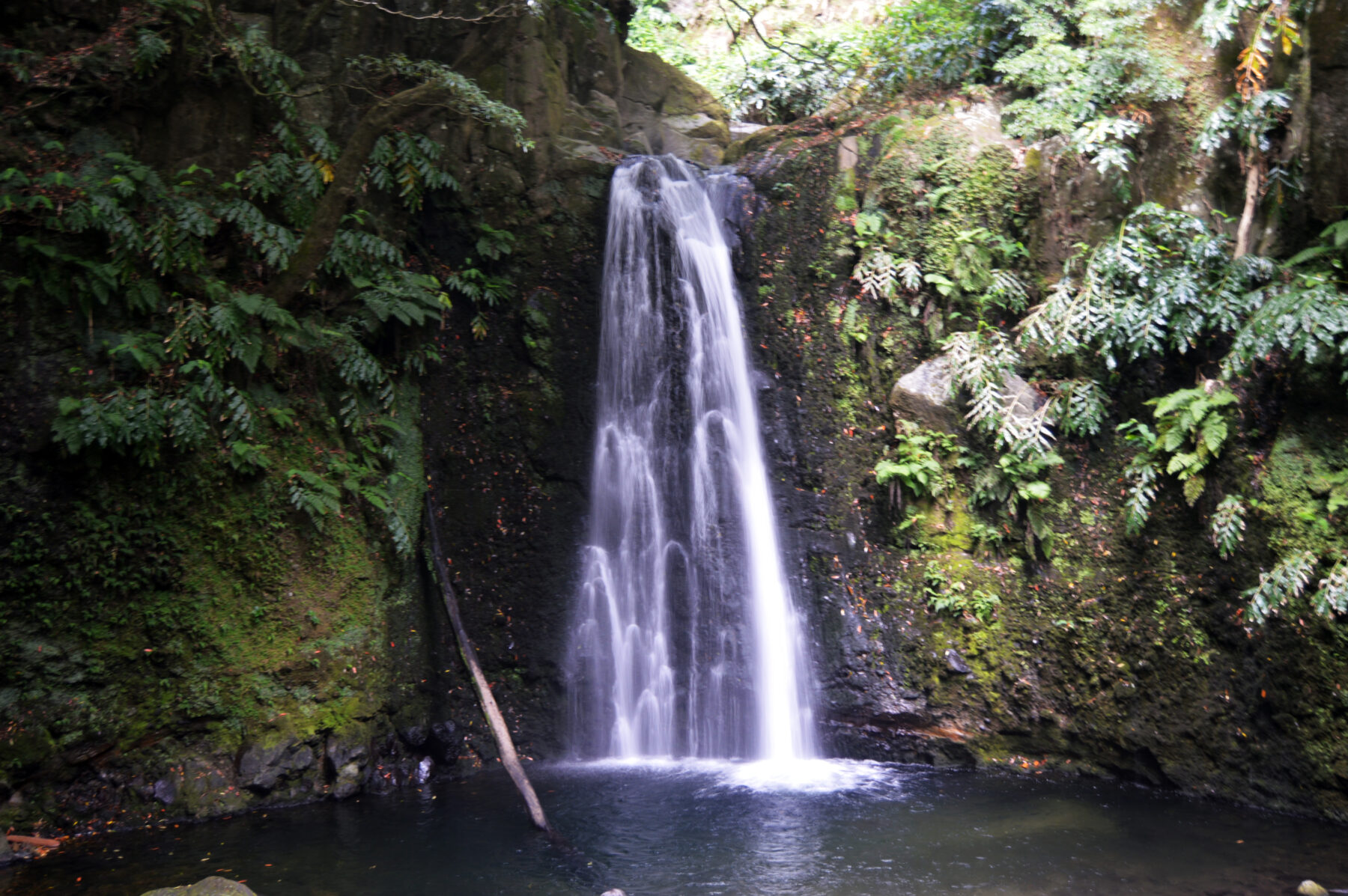
Fotografia de Rodrigo Pereira Aguiar
Finally, as you descend the winding stone path, be very careful, as the surface is slippery and steep. You will arrive back at the first fork near the stream, completing the trail. This hiking path is definitely worth it, offering various perspectives of the parish of Faial da Terra, as well as the lush and exotic endemic Azorean vegetation.
Portinho do Faial da Terra & Swimming Pool
Located at the bottom of a cliff approximately 60 meters high, in the southwestern part of the parish, Portinho do Faial da Terra is a popular spot for swimming due to the area formed by a pebble and sandy bay, as well as a swimming pool. There are times when the amount of sand is quite small, with pebbles predominating. The location has good infrastructure to accommodate bathers.
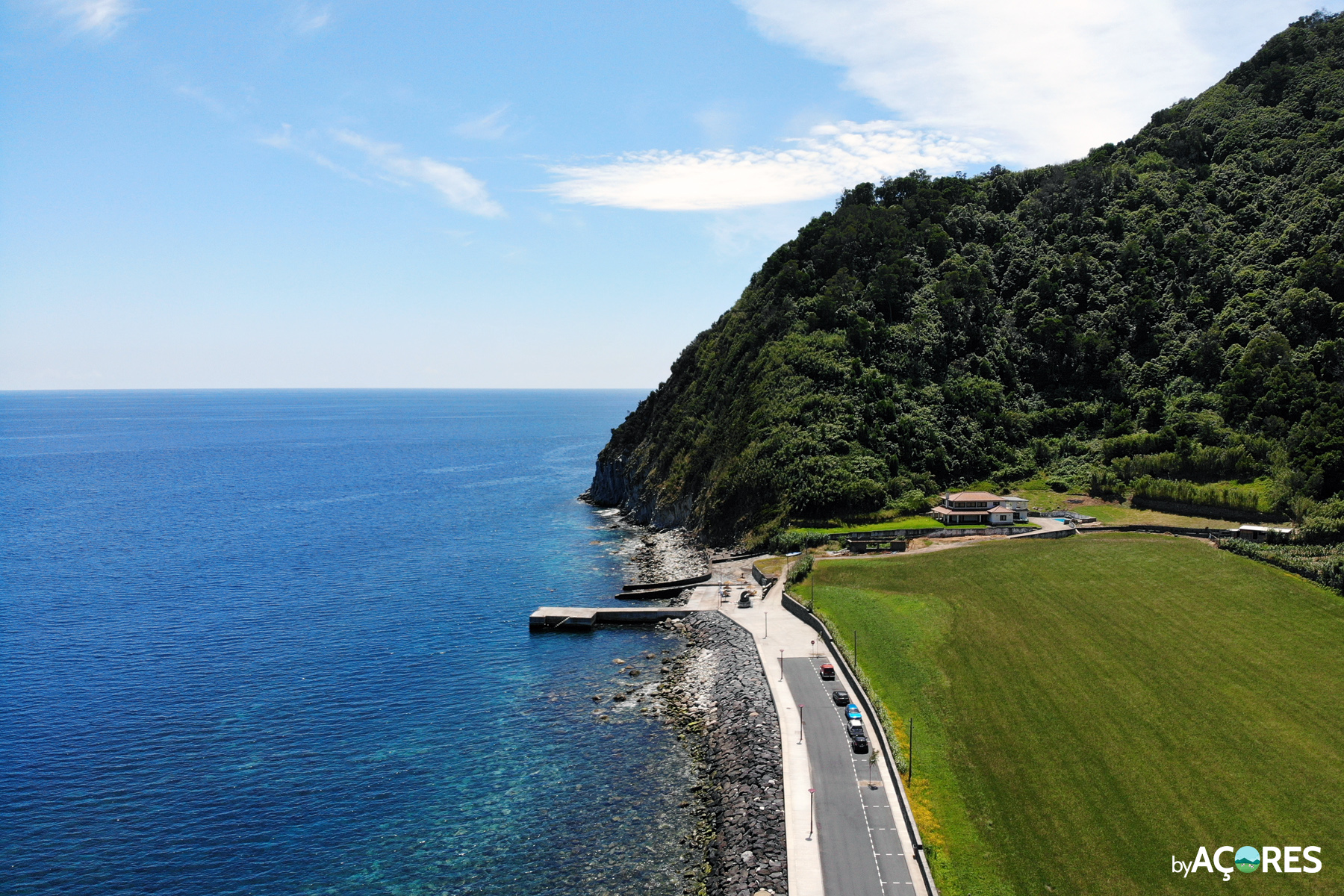
The port is also sought after by divers and those wishing to enjoy a magnificent scenery. Faial da Terra was one of the most significant whaling regions on São Miguel Island, recorded in the history of the port. The slipway still serves as support for artisanal fishing and assists bathers in accessing the water.
Near Portinho, you will find the Porto Novo Picnic Park, which offers a barn, grills, stone tables, and benches, ideal for gathering family and friends for a picnic. Don’t forget to visit this special space in Faial da Terra.
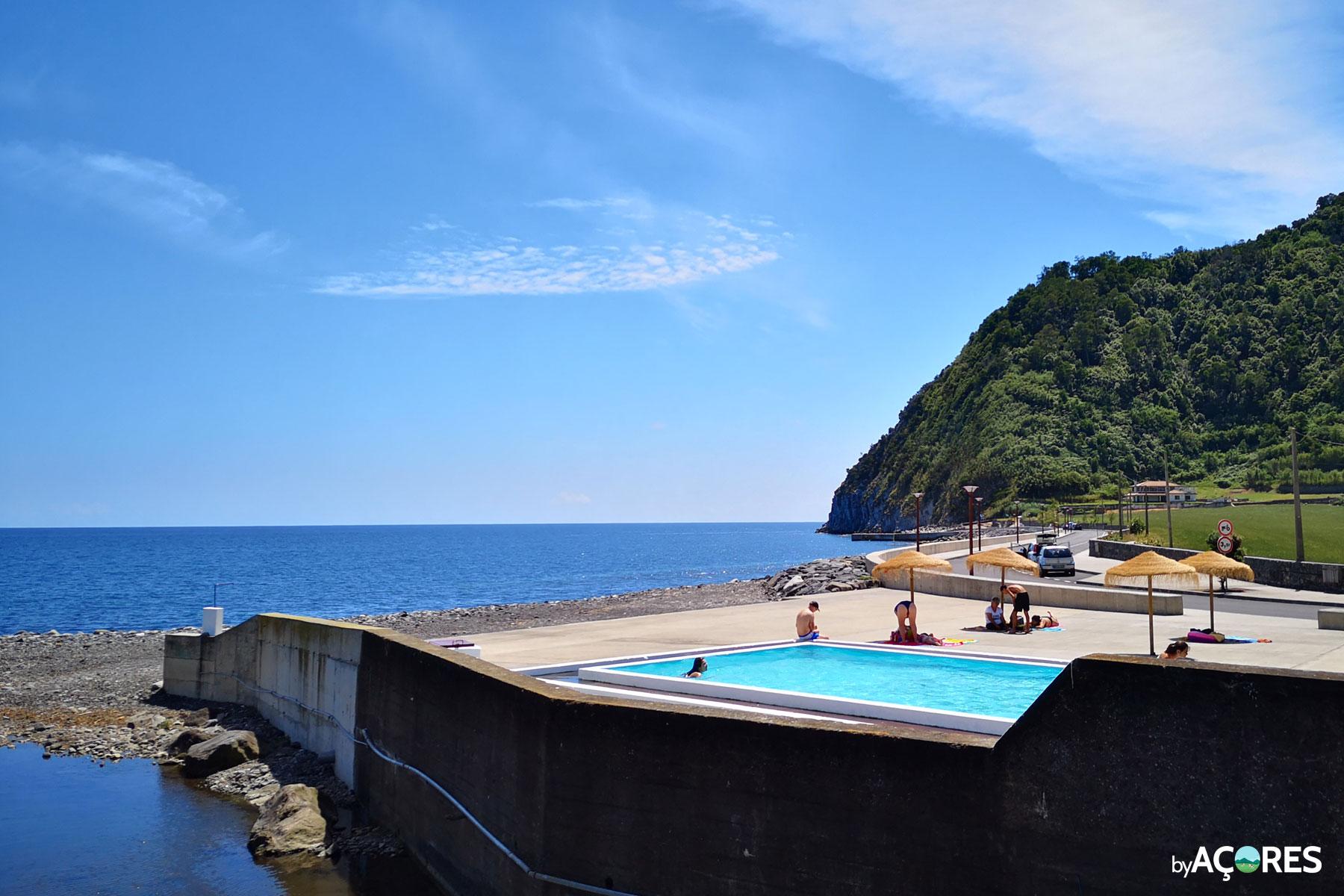
Location on the Map
Photos
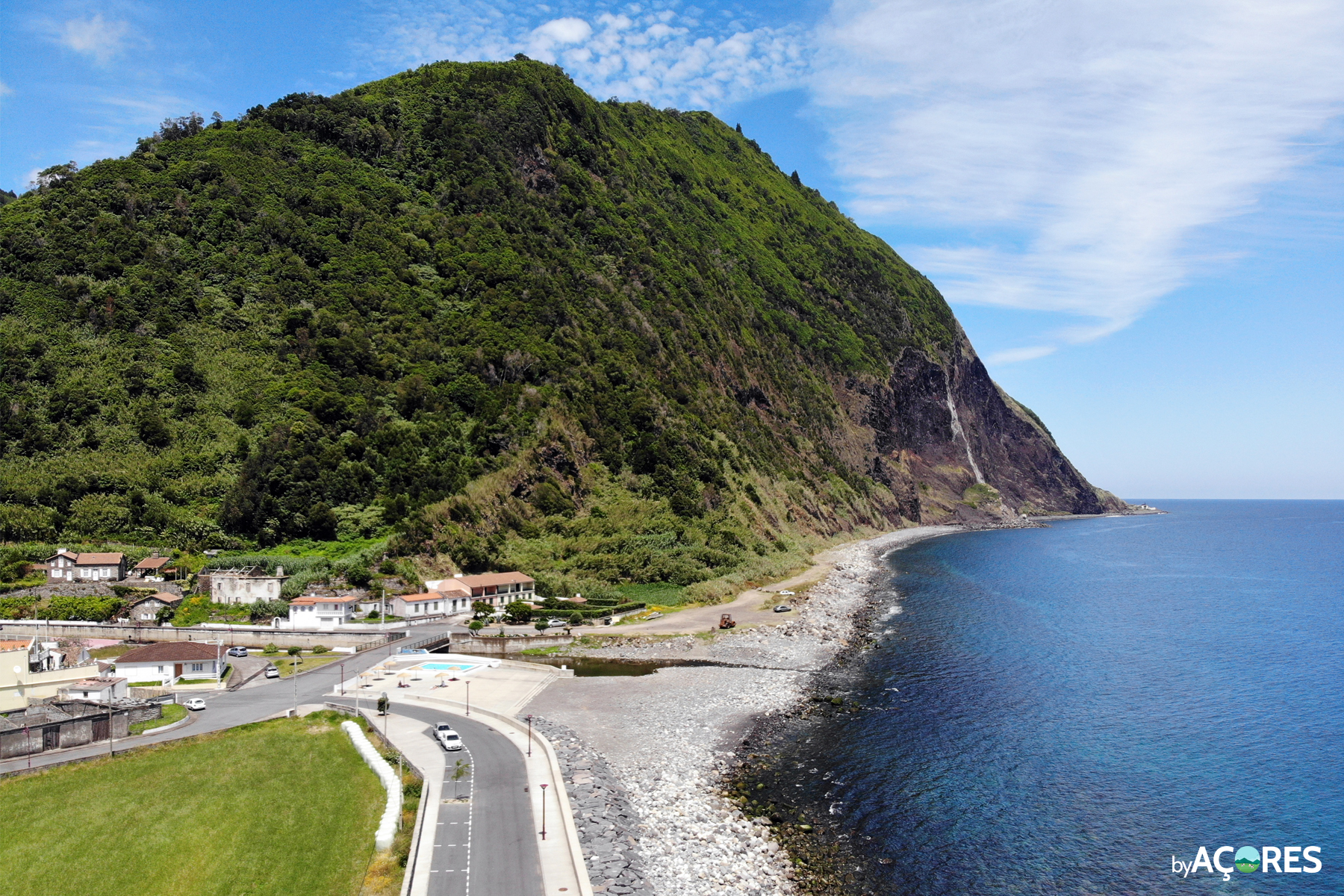
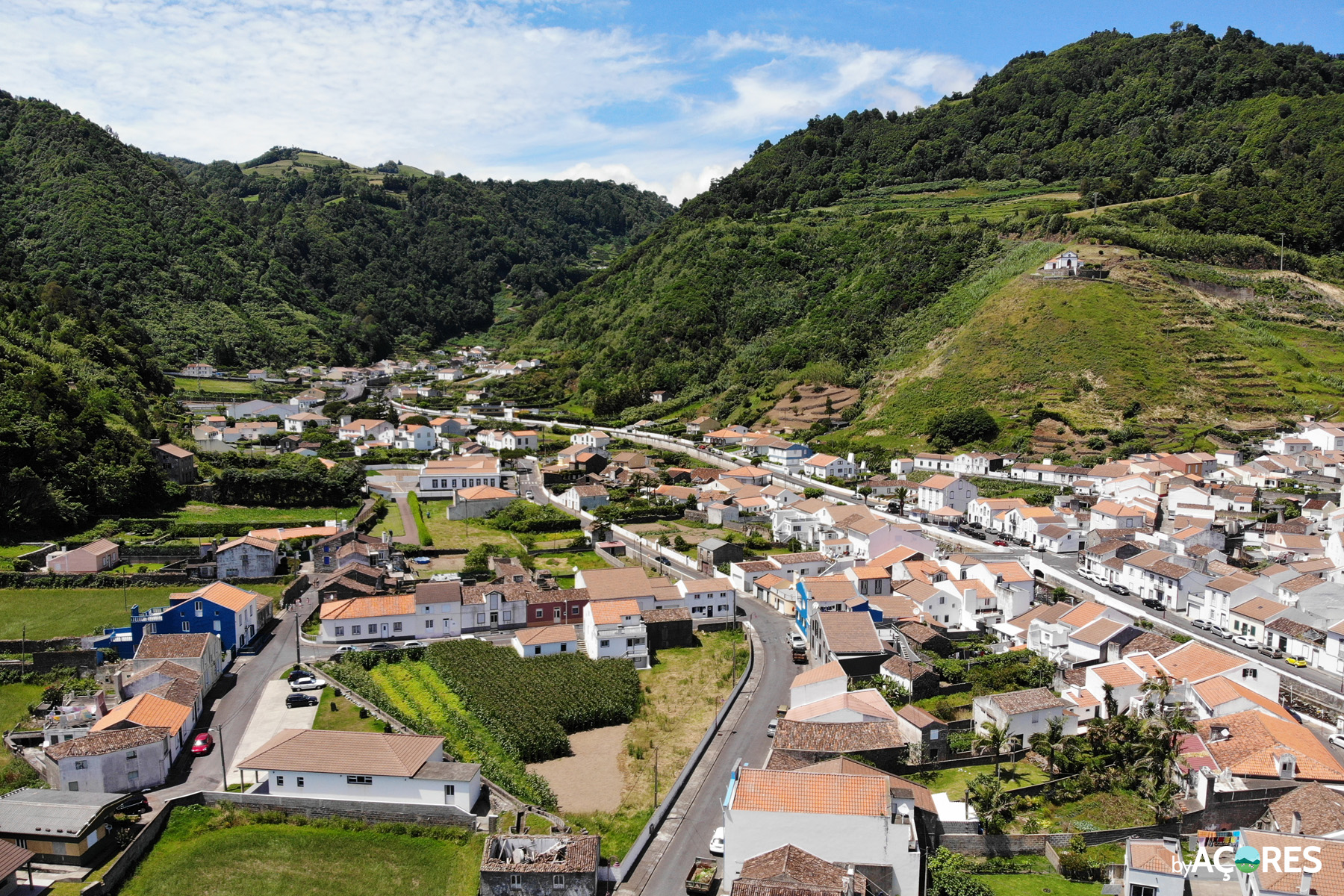
Video
 Quick links and suggestions
Quick links and suggestions
Travel insurance with 15% discount for the Azores or another destination Click here to simulate >
Looking for trips to the Azores? See these promotions >
Rent a car in the Azores? The best rent-a-car >
Activities and Experiences during your stay? Check it out here >
See Whales and Dolphins? Book now online >
Have you had a canceled or delayed flight in the last 3 years? Receive your compensation here >


